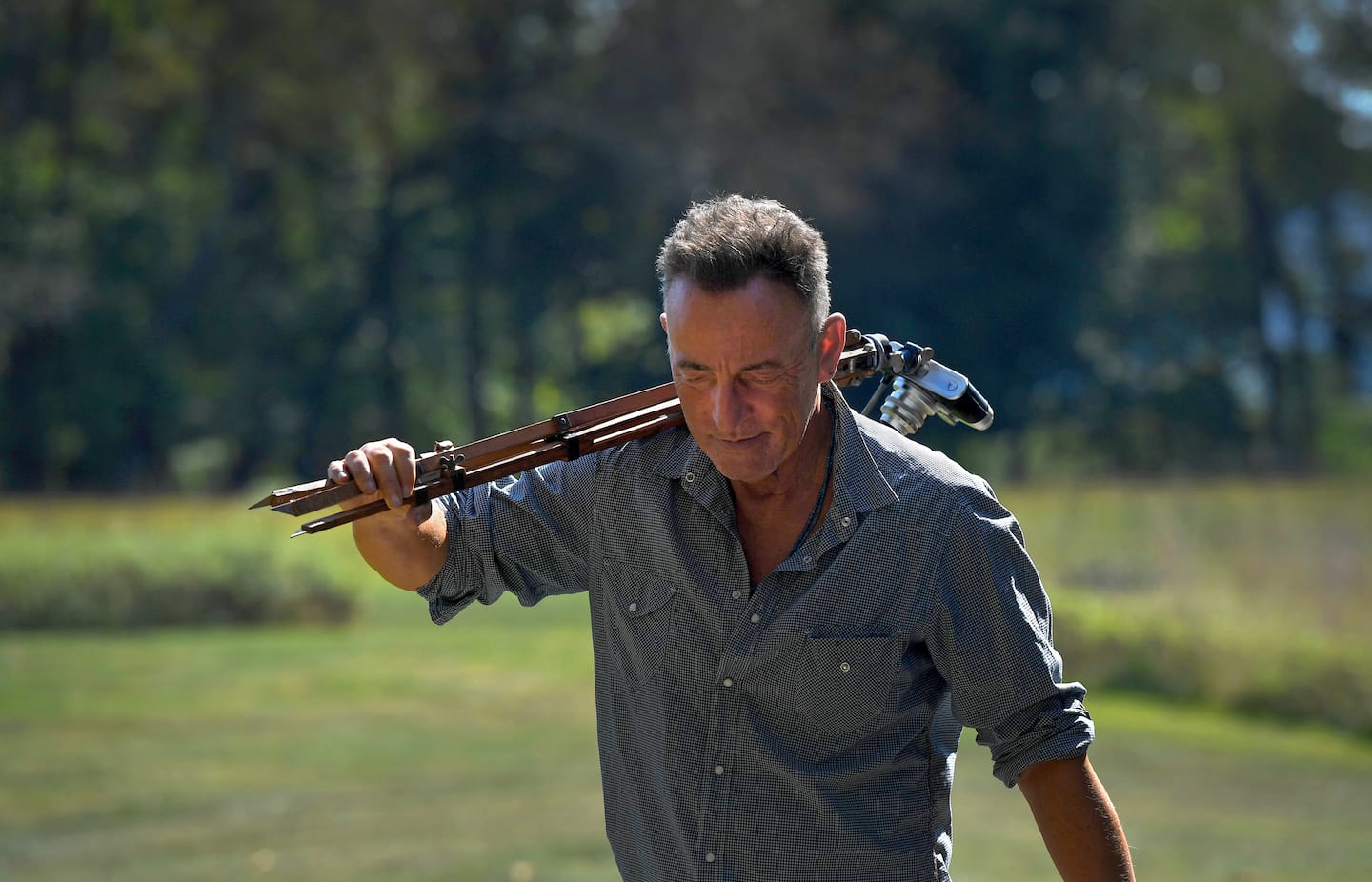Bruce Springsteen review: “Letter to You” is more legacy building for the Boss
[ad_1]
Now 71 years old and understandably not on tour, Springsteen and the E Street Band have wisely refocused their thematic scopes to dreamy, long-range rearview. “Letter to You,” his 20th studio album, pulls generously from his blue-collared dreamworlds — penance to trains, rivers and the act of going down to them; panegyrics to small towns, to New Jersey, to Mama and the sheriff and the car and the gun — but settles comfortably into the prevailing pan-cultural mood of loss and yearning for a collection that looks backward at his legacy with all the mist, glory and dew of memoriam.
In the loosest sense, “Letter to You” is a fantasy concept album, where the concept and fantasy include going to a bar and listening to Bruce Springsteen. You can already hear the scrape of a thousand bar stools with “The Power of Prayer,” a league of Teamsters chorusing the climax of “Letter to You,” the gallop of “Burnin’ Train” playing faintly behind a television someone left on. Montaged with strivers, loners, mavericks and marginals, this is an album of happy hourers, for happy hourers.
New stories feel extremely familiar, not only because they perform the same rousing, recombinant visions of American pleasure and grit we’ve come to understand as trademark, but partly due to the fact that they’re flanked by refashioned rarities and demos that resurrect artifacts written by a 20-something Springsteen as part of a pointed act of continued self-mythology.
Behold “Janey Needs a Shooter,” a song that Springsteen’s been sitting on since 1972, recorded (and never released) at the Telegraph Hill studio in 1979, and now finally spit-shined to pop fidelity. (Warren Zevon — who adored the folksy title — asked Springsteen for the track and rejiggered it alongside him to write a cousinish version found on 1980’s “Bad Luck Streak in Dancing School.”) Take “Song for Orphans” — a track from when Columbia had been pitching Springsteen as “the new Dylan” — as a full act of Nixon-era cosplay, with wheezing harmonicas, Ginsburgian turns of phrase and nasal delivery, but with Bruce’s less bookish, more burly grip.
Down two members of his canonical E Street Band — saxophonist Clarence Clemons and keyboard player Danny Federici — as well as surviving every other bandmate of his first boyhood act, the Castiles, questions of erosion and preservation seem to be top of mind. The third relic, the wildly somber “If I Was the Priest” — unearthed from a particularly Catholic-adjacent spiritual place in 1970 — has Jesus literally “standing in the doorway,” just as song titles like “One Minute You’re Here,” “Ghosts,” and “Last Man Standing” necessarily forge an enemy in time’s indiscriminate boot.
Yet the E Street Band is a supple, wide concept — just as Spingsteen’s voice remains and, as this album argues, Springsteen’s work will relentlessly be. “Letter to You,” with all of its morally economical anthems in similar major-chord progressions, growly we-gotta-get-out-of-here pieties, sweepingly uplifting promises, and paeans to the pure pursuit of pressing on, is classic Brucian fare meant to underscore his famously superhuman stamina, both thematically and in the flesh. (For those with exceptionally bottomless Springsteen-shaped pits in their hearts, there is a 90-minute duotone documentary of him working with the remaining E Streeters, filled with scenes of the men nodding approvingly from behind studio glass, clapping one another on the back, and soulfully adjusting volume equalizer boards as part of the album’s five-day marathon recording session. Springsteen’s legend-making machine, it insists, is well-oiled, healthy and here to stay.)
A sort of seductive mass appeal has always been an unspoken line item in Springsteen’s ascetic creative budget — it may explain why his Vietnam War disquiet in “Born in the U.S.A.” is regularly misinterpreted as a purely red-white-and-blue-blooded anthem, as well as why the cult of Springsteenism has such an erotic charge both in and beyond this nation. What has always been fulfilling about Springsteen is his shorthand for distilling Sinclair’s vision of the workingman’s eternal dispossession — what he called the “hog-squeal of the universe” in “The Jungle” — into far more redeeming and digestible psalms. Springsteen’s work is rebellious, but never too much so; he is involved in politics, but perhaps largely metaphorically. His core interest, it seems, is an earnest, stolid belief in rock’s power to soothe life’s inconsistencies.
Work in black-and-white grandeur smooths these subtleties just as well as it frames the consideration of legacy. Among his other masters — James Brown, Roy Orbison — Springsteen’s spiritual apprenticeship has always felt most uniquely descendant of another blue-collared-boy-turned-ubermensch; a man whose rise and power felt equally — at one point — godlike but shared nothing of Springsteen’s sainthood. “Elvis,” awed Springsteen in 1971, “was as big as the whole country itself, as big as the whole dream.” It’s become clear now how tightly Bruce held to this image. Whereas Elvis leaves behind the idea that the dream was a myth all along, Springsteen — in his own way — will endure as an artist who never let it go.
[ad_2]
Source link
